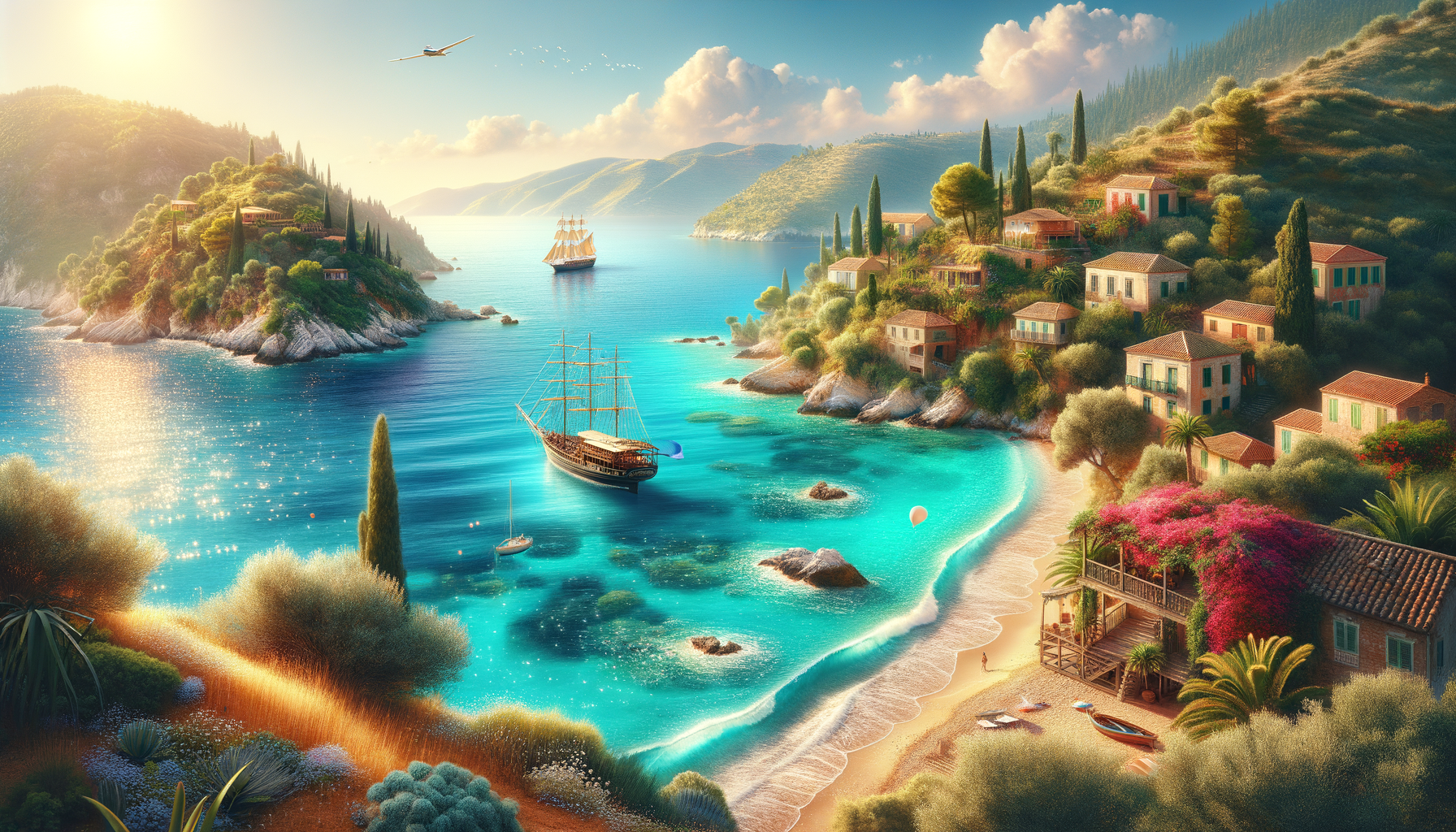The Mediterranean: A Cultural Mosaic
The Mediterranean region is a tapestry of cultures, each with its own unique story to tell. This area is a melting pot of civilizations that have shaped human history for millennia. From the ancient Greeks and Romans to the Phoenicians and Ottomans, the Mediterranean has been a crossroads of cultural exchange. This blend is evident in the architecture, cuisine, and traditions that define the region. Visitors can explore ancient ruins, such as the Parthenon in Athens or the Roman Colosseum, which stand as testaments to the grandeur of past empires.
The region’s cultural diversity is not only historical but also contemporary. Each country along the Mediterranean coast offers its own unique flavor, from the vibrant flamenco dances of Spain to the intricate tile work of Morocco. This cultural richness is complemented by a variety of languages, religions, and customs that coexist harmoniously, offering travelers a chance to experience a world of diversity within a single voyage.
Key highlights of the Mediterranean’s cultural landscape include:
- Historical landmarks and ancient ruins
- Rich culinary traditions
- Diverse languages and dialects
- Vibrant festivals and local events
Exploring the Mediterranean is like stepping into a living museum where every corner has a story waiting to be discovered.
The Allure of Mediterranean Cuisine
Mediterranean cuisine is celebrated worldwide for its fresh ingredients and bold flavors. The diet is renowned for its health benefits, often associated with longevity and a lower risk of chronic diseases. This culinary tradition is rooted in the use of olive oil, fresh vegetables, seafood, and a variety of herbs and spices that create a symphony of taste.
Each country within the Mediterranean basin offers its own culinary specialties. In Italy, you can indulge in pasta and pizza, while Greece offers delights such as moussaka and tzatziki. Spain tempts with tapas and paella, and the Levantine region serves up hummus and falafel. These dishes are not just meals but cultural experiences that reflect the heritage and history of their respective regions.
The Mediterranean diet is characterized by:
- High consumption of fruits and vegetables
- Use of healthy fats, primarily from olive oil
- Moderate consumption of fish and poultry
- Limited intake of red meat and sweets
Dining in the Mediterranean is an opportunity to savor the simplicity and freshness of ingredients that are locally sourced and lovingly prepared. Whether dining in a rustic taverna or a seaside café, the experience is sure to be a highlight of any Mediterranean journey.
Exploring the Mediterranean’s Natural Wonders
The Mediterranean is not only rich in culture and cuisine but also blessed with breathtaking natural beauty. The region’s diverse landscapes range from sun-drenched beaches and azure waters to rugged mountains and lush valleys. This variety offers endless opportunities for adventure and relaxation.
For beach lovers, the Mediterranean coastline is a paradise with its crystal-clear waters and golden sands. The French Riviera, Amalfi Coast, and the islands of Greece are just a few of the stunning destinations that beckon travelers seeking sun and sea. Each location offers its own unique charm, with picturesque villages and vibrant marine life.
Beyond the beaches, the Mediterranean is home to majestic natural parks and reserves. The Pyrenees and the Dolomites provide excellent hiking opportunities, while the lush landscapes of Corsica and Sardinia offer trails for nature enthusiasts. These natural wonders are complemented by a mild climate that allows for year-round exploration.
Highlights of the Mediterranean’s natural beauty include:
- Stunning coastlines and beaches
- Mountain ranges and hiking trails
- Unique flora and fauna
- Marine reserves and diving spots
Whether you seek adventure or tranquility, the Mediterranean’s natural wonders provide a backdrop for unforgettable experiences.
Iconic Mediterranean Cities: A Blend of Old and New
The cities of the Mediterranean are vibrant hubs where history and modernity coexist in harmony. Each city offers a unique blend of ancient architecture and contemporary culture, providing travelers with a rich tapestry of experiences.
Venice, with its enchanting canals and Renaissance art, is a city that seems to float on water. Its historic charm is matched by a lively arts scene and bustling markets. Barcelona, on the other hand, is a city of contrasts, where the whimsical architecture of Antoni Gaudí meets the bustling energy of Las Ramblas. The city’s beaches and vibrant nightlife add to its allure.
In Istanbul, the meeting point of Europe and Asia, visitors can explore the grandeur of the Hagia Sophia and the bustling bazaars that offer a sensory overload of sights, sounds, and smells. Athens, the cradle of Western civilization, invites travelers to walk in the footsteps of philosophers and explore the ancient ruins that dot its landscape.
Key features of Mediterranean cities include:
- Blend of ancient and modern architecture
- Vibrant arts and cultural scenes
- Bustling markets and street life
- Rich historical heritage
Each city in the Mediterranean offers a unique glimpse into the past while embracing the present, making them must-visit destinations for any traveler.
Embarking on a Mediterranean Voyage: Tips and Insights
Planning a Mediterranean voyage involves more than just choosing destinations; it’s about crafting an itinerary that captures the essence of this diverse region. Here are some tips and insights to help you make the most of your journey:
First, consider the timing of your trip. The Mediterranean climate is generally mild, but the best time to visit is during the spring and fall when the weather is pleasant and the crowds are smaller. This allows for a more relaxed exploration of popular sites.
When it comes to transportation, a cruise can be an excellent way to experience multiple destinations with ease. Alternatively, consider renting a car or using local trains and ferries to explore at your own pace. Each mode of travel offers its own unique perspective of the region.
To fully immerse yourself in the local culture, try to engage with the locals. Participate in local festivals, sample regional dishes, and explore off-the-beaten-path locations. This will enrich your experience and provide a deeper understanding of the Mediterranean way of life.
Essential tips for a Mediterranean voyage include:
- Timing your visit for optimal weather and fewer crowds
- Choosing the right mode of transportation
- Engaging with local culture and traditions
- Exploring beyond the tourist hotspots
By following these insights, you can embark on a Mediterranean voyage that is both enriching and unforgettable.




Leave a Reply